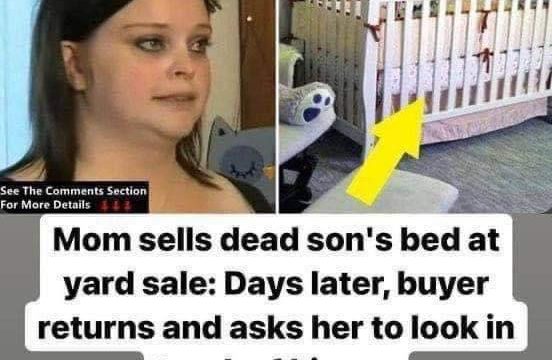I Returned Home from the Hospital to Find My Baby’s Nursery Destroyed—And My Mother-in-Law’s Reason Left Me Heartbroken
The excitement of bringing my newborn daughter home quickly turned into a nightmare when I discovered her nursery had been wrecked. The soft pink walls were repainted black, the crib was broken, and all her toys were missing. What hurt the most was the reason behind it—my mother-in-law’s cruel actions.

After a tough C-section, I was overjoyed to finally hold our little girl, Amelia, in my arms. Her tiny hands and perfect features made everything worth it. My husband, Tim, and I had been eagerly waiting to bring her home to the nursery we’d lovingly prepared—complete with pastel pink walls, a white crib, and a collection of stuffed animals.
But from the moment Janet, my mother-in-law, laid eyes on Amelia at the hospital, I could sense something was wrong. Her smile froze, and without hesitation, she accused me of infidelity. “This can’t be Tim’s child,” she said, eyeing Amelia’s beautiful dark skin. Both Tim and I are white, and although we were surprised at first, we later learned that Tim’s great-grandfather was Black—a part of his heritage that had been buried.
We embraced Amelia’s uniqueness, but Janet refused to accept her. Instead, she saw our baby as a threat to her narrow view of family.
Fast forward two weeks. After returning home, I was eager to show Amelia her nursery, but when I opened the door, I was shocked. The soft pink walls had been painted black, the crib was in pieces on the floor, and everything that once made the room cozy and inviting was gone.
Standing behind me, Janet proudly announced, “I fixed the room. It wasn’t appropriate anymore.”
Anger surged through me. “This was my baby’s room! You had no right!” I shouted.
Janet crossed her arms. “She’s not my grandchild. Both you and Tim are white, but this baby isn’t. I’m not accepting her.”
I was devastated. I had never imagined my own mother-in-law would act so racist. Despite trying to explain that genetics can be unpredictable and that Amelia is, in fact, Tim’s daughter, Janet refused to listen. She believed Amelia wasn’t family and destroyed the nursery out of spite.
I called Tim, urging him to come home immediately. When he arrived and heard what happened, he was furious. Confronting his mother, he told her, “Amelia is my daughter. If you can’t accept that, you’ll never see her—or us—again.”
That night, Tim and I decided to expose Janet’s cruelty. I had recorded her hateful comments, so we posted the evidence on social media, revealing her actions to family and friends. The response was overwhelming—people were outraged by her behavior, and even Janet’s church group reached out in disbelief.
Unexpectedly, Janet lost her job after the post went viral, but Tim and I didn’t feel guilty. Her actions had consequences.
In the weeks that followed, we repainted Amelia’s nursery and made it even better than before. We realized that our little family, filled with love and respect, was all that truly mattered.
As for Janet? I don’t think she’ll ever recover from the humiliation. And honestly, she doesn’t deserve to.





